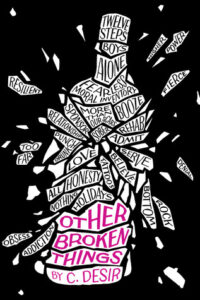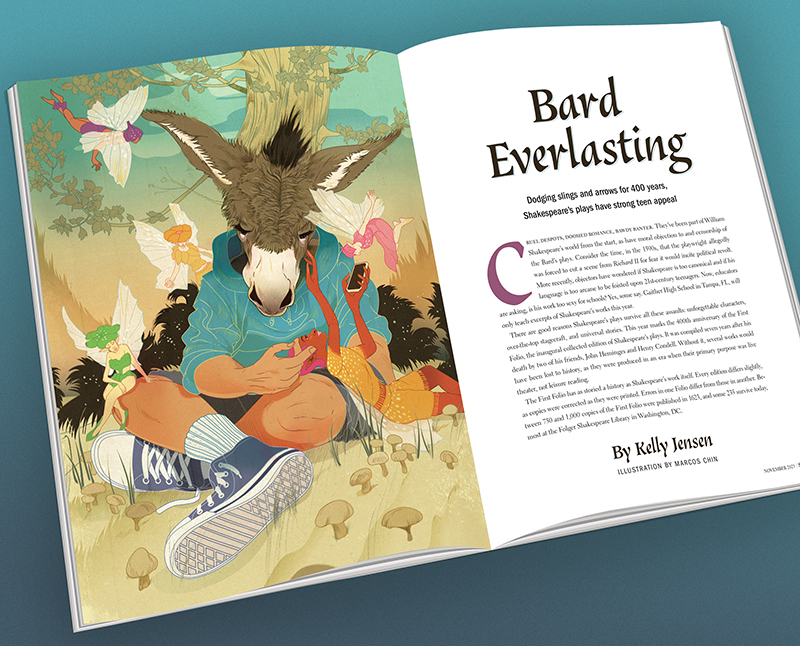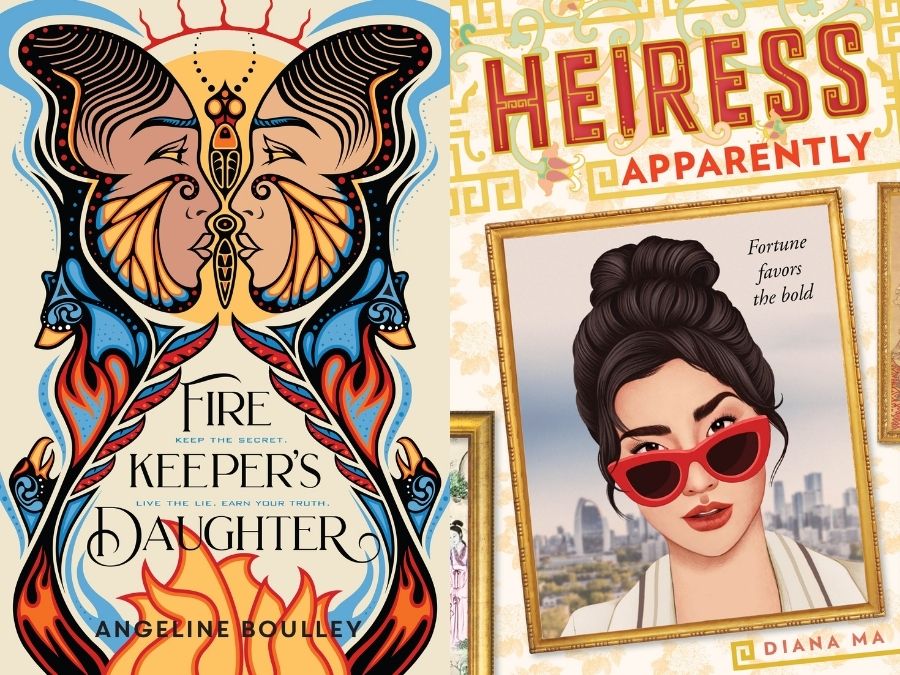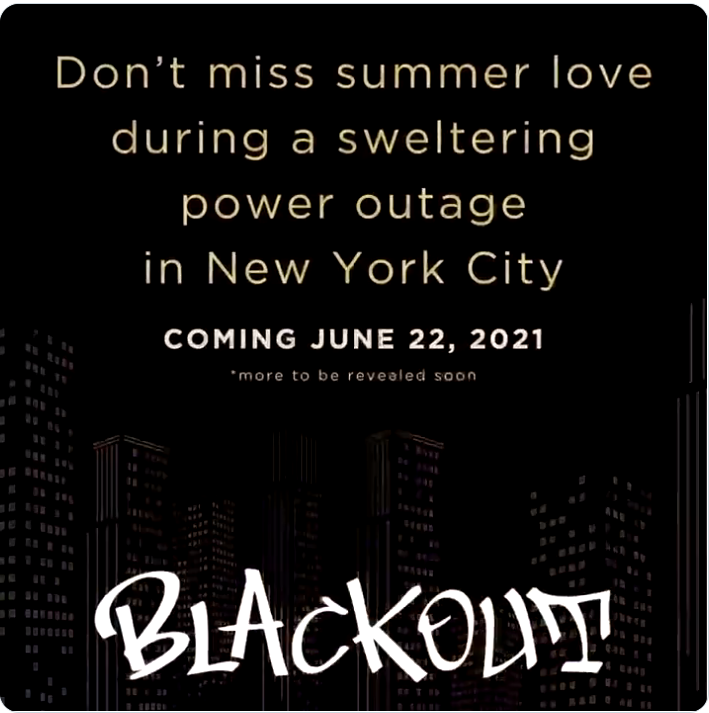#MHYALit: Where Are the Books on Addiction for Your Mental Health Book List? by author Christa Desir
Today as part of the release day celebration for her third novel, OTHER BROKEN THINGS, author Christa Desir is joining us for #MHYALit to talk about addiction.
Whenever I see lists of books about mental illness, I am always baffled by the complete omission of any books on addiction. But recently, a friend told me that she doesn’t consider addiction to be a mental illness since there is a choice in deciding to use, but not in what is going on with your emotions.
Wait…what?
I was completely shocked to hear this. First, drug use disorders and drug dependence are both catalogued in the DSM, which is sort of the preeminent book on all mental health disorders. Second, new research is being done every day to identify the cause of addiction (and why some are more susceptible to it) and many theorize there could be deficiencies in the brain reward systems of the people who are more likely to become addicts. Third, in many cases of addiction, there are numerous other mental health issues in play and it is often difficult to ascertain what is exactly causing different behaviors (for example: depressives who self-medicate with alcohol become more depressed because of the effects of alcohol). And finally, even if there is no absolute consensus on the cause of addiction, there is a tremendous amount of agreement on the distorted cognitive and emotional functioning of addicts.
ADVERTISEMENT
ADVERTISEMENT
But our country was founded on principles of strength and self-reliance and discipline, so more often than not, people have little empathy for addicts. I have heard over and over, “Well, they did it to themselves.” As if systems of oppression, marginalization, resource inadequacies, etc. don’t play a tremendous roll in drug/alcohol use. As if people wake up and think, “Today, I’m going to become an addict.”
Earlier this year, I served on a jury trial about a woman who had become addicted to prescription drugs and the doctor who had been treating her with these drugs for thirteen years. The woman OD’d and died. Half of the jurors in the case blamed the woman completely, and did not hold in any way responsible the doctor who had been enabling her habit in spite of his knowledge of her drug-seeking behaviors. I have never gotten such insight into people’s feelings about addicts as I did in that jury deliberation room.
The United States has a drug problem, one that spins out into lots of other areas (unemployment, mass incarceration, etc). Our country is in the midst of a heroin epidemic with its use increasing 63% in the last eleven years, but this isn’t what people want to talk about. Because at the heart of all addiction conversation is usually a finger-pointing blame that an addict “did this to herself.”
Addiction is a complicated thing, and there is no easy answer. But there is no doubt in my mind that if we treated it more as a mental illness, if we looked at addiction as a disease and not as a weakness, we would make more strides toward solving it.
Six books dealing with addiction/recovery:
Ellen Hopkin’s Crank: In Crank, Ellen Hopkins chronicles the turbulent and often disturbing relationship between Kristina, a character based on her own daughter, and the “monster,” the highly addictive drug crystal meth, or “crank.”
Nic Sheff’s Tweak: Nic Sheff was drunk for the first time at age eleven. In the years that followed, he would regularly smoke pot, do cocaine and Ecstasy, and develop addictions to crystal meth and heroin. In a voice that is raw and honest, Nic spares no detail in telling us the compelling, heartbreaking, and true story of his relapse and the road to recovery.
Amy Reed’s Clean: Olivia, Kelly, Christopher, Jason, and Eva have one thing in common: They’re addicts. Addicts who have hit rock bottom and been stuck together in rehab to face their problems, face sobriety, and face themselves.
Kelly Fiore’s Thicker Than Water: Cyrus wasn’t always the drug-addled monster he’d become. He was a successful athlete, but when an injury forced him off the soccer field and onto pain medication, his life became a blur of anger, addiction, and violence. All CeCe could do was stand by and watch, until she realized one effective way to take away her brother’s drugs while earning the money she needed for college: selling the pills.
Jacqueline Woodson’s Beneath A Meth Moon: Hurricane Katrina took her mother and granmother. And even though Laurel Daneau has moves on to a new life—one that includes a new best friend, a spot on the cheerleading squad, and dating the co-captain of the football team—she can’t get past the pain of that loss. Then her new boyfriend introduces her to meth, and Laurel is instantly seduced by its spell, the way it erases, even if only temporarily, her memories.
Christa Desir’s Other Broken Things: Nat’s not an alcoholic. She doesn’t have a problem. Everybody parties, everybody does stupid things, like get in their car when they can barely see. Still, with six months of court-ordered AA meetings required, her days of vodka-filled water bottles are over.
Meet Christa Desir:
ADVERTISEMENT
ADVERTISEMENT
Christa Desir is a YA author and rape victim advocate. Her YA novels, Fault Line and Bleed Like Me, are both honest and gutwrenching explorations of teens grappling with real world issues like rape (Fault Line) and cutting (Bleed Like Me). In January 2016 her next book, Other Broken Things, releases and it explores addiction in the life of a female boxer. I recently read a copy of Other Broken Things on Edelweiss and it has an engagingly authentic teen voice and I liked the way it honestly dealt with and talked about the topic of addiction. Our teen reviewer Lexi says, “I think every teen should read this book. Every kid who feels broken. Every girl who feels like they can’t make it. Every boy who feels like giving up. Every and any person who feels like they are the only ones broken, because they’re not. This book is so painfully honest that it hurts to read at points. But it’s so worth it.”
About Other Broken Things:
Nat’s not an alcoholic. She doesn’t have a problem. Everybody parties, everybody does stupid things, like get in their car when they can barely see. Still, with six months of court-ordered AA meetings required, her days of vodka-filled water bottles are over.
Unfortunately her old friends want the party girl or nothing. Even her up-for-anything ex seems more interested in rehashing the past than actually helping Nat.
But then a recovering alcoholic named Joe inserts himself into Nat’s life and things start looking up. Joe is funny, smart, and calls her out in a way no one ever has.
He’s also older. A lot older.
Nat’s connection to Joe is overwhelming but so are her attempts to fit back into her old world, all while battling the constant urge to crack a bottle and blur that one thing she’s been desperate to forget.
Now in order to make a different kind of life, Natalie must pull together her broken parts and learn to fight for herself.
Simon Pulse, 2016
See all the #MHYALit Posts Here
Filed under: #MHYALit, Uncategorized
About Karen Jensen, MLS
Karen Jensen has been a Teen Services Librarian for almost 30 years. She created TLT in 2011 and is the co-editor of The Whole Library Handbook: Teen Services with Heather Booth (ALA Editions, 2014).
ADVERTISEMENT
ADVERTISEMENT
SLJ Blog Network
Name That LEGO Book Cover! (#53)
Cover Reveal and Q&A: The One and Only Googoosh with Azadeh Westergaard
Exclusive: Vol. 2 of The Weirn Books Is Coming in October | News
Fighting Public School Book Bans with the Civil Rights Act
ADVERTISEMENT









